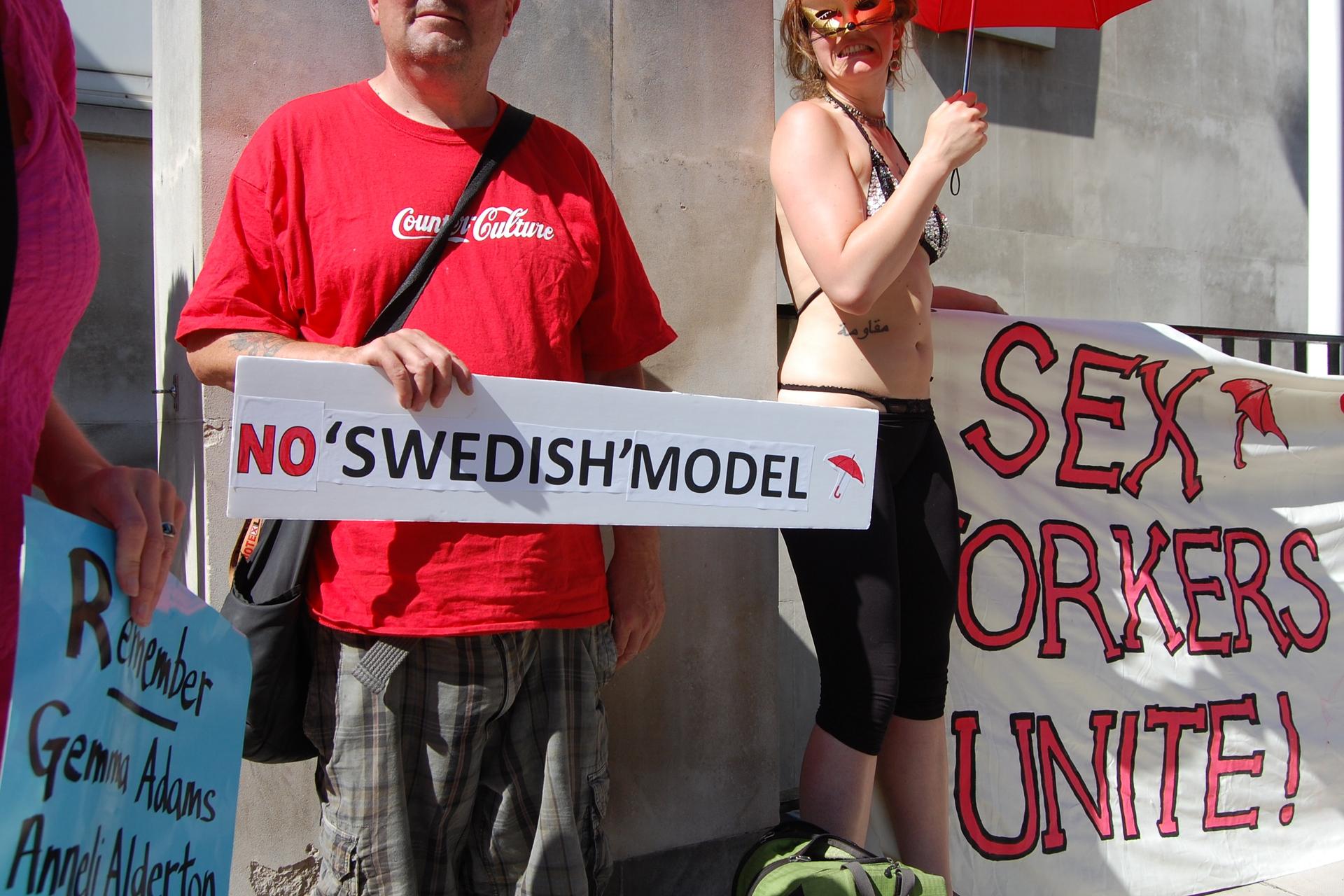Prostitution in Europe: Legalize or criminalize?
Demonstrators in front of the Swedish Embassy in London last month protested the country’s prostitution laws after a sex worker was murdered there.
GlobalPost looks at the changing nature of sex work in Britain in the second of a four-part series.
LONDON, UK — On an unusually hot July afternoon, two dozen men and women
gathered in front of the Swedish Embassy in London’s tony Marylebone district.
They were joining protestors across the world who descended on Swedish embassies to rally against the government’s policy of criminalizing the purchase of sex — a law they argued had directly contributed to the death of a prostitute several weeks earlier.
Petite Jasmine, an outspoken Swedish sex worker, was murdered by an abusive former partner. He had been awarded custody of the couple’s children on the grounds that Jasmine’s profession made her unfit to be a parent.
At the protest, a woman in a bike messenger cap with tattoos on her hands held a banner reading “We demand sex worker rights. Stop the deaths.”
A prostitute and a parent, she said she’d had a “very physical reaction” to the murder.
“To feel that you should be ashamed of what you do, that your worth as a parent, as a person, as a citizen is called into question . . . We’re all endangered!” she said.
Then she joined others chanting, “Shame! Shame! Shame!"
Sweden made it a crime to buy sex in 1999 — but not to sell it. The government also invested heavily in programs to help women leave prostitution. Norway and Iceland soon passed similar laws. Criminalizing the purchase of sex is now known as the Nordic model.
Although street prostitution in Sweden has plummeted dramatically, it has also increased in neighboring countries.
Today, debate over outlawing prostitution, which has been considered in a number of countries — including Britain — is fierce.
Proponents say legislating the demand for paid sex puts an end to prostitution without penalizing women who are already vulnerable.
Earlier this year, Rhoda Grant, a Labour member of the Scottish parliament, introduced a bill inspired by the Nordic model that would have criminalized the purchase of sex in Scotland.
"Changing the way society views prostitution is as important as changing the law,” Grant told the Guardian. “We have to say no, it is not acceptable to buy and sell another human being. That should not be acceptable in our society."
Although the legislation failed to win enough support to move forward, its introduction was promising for those who would like to see prostitution stamped out in the UK — and unsettling for those who don’t.
More from GlobalPost: Anti-gay groups stage mounting attacks in Ukraine
But critics say banning paid sex simply drives the trade underground.
“It leads to all manner of increased danger, increased risk. The transactions are quicker, the punters [clients] are dodgier,” said Alex Bryce, director of the National Ugly Mugs scheme, an organization that works to protect sex workers. “If what you’re doing is illegal, you’re far less likely to go to the police.”
Arguing for those in the middle of the debate, a vocal international sex worker lobby says that their members don’t want to be saved from their profession.
“I’m an independent worker,” a prostitute who goes by the name of Mz Jane said at the Swedish embassy protest. “The idea that my work would be criminalized is frightening.”
We want to hear your feedback so we can keep improving our website, theworld.org. Please fill out this quick survey and let us know your thoughts (your answers will be anonymous). Thanks for your time!
